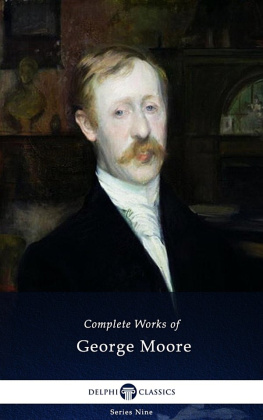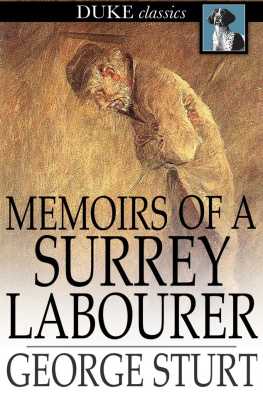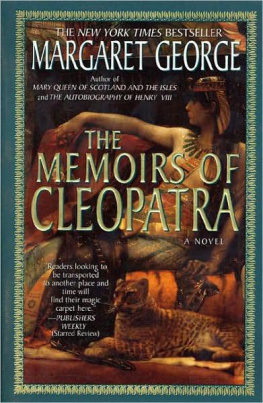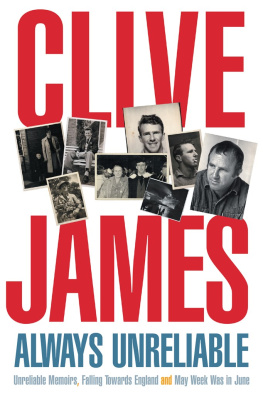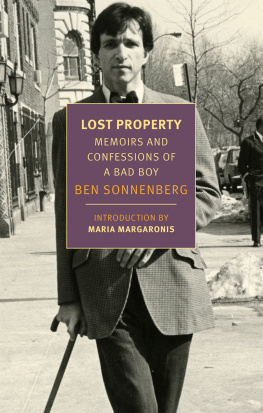George Moore - Memoirs of My Dead Life
Here you can read online George Moore - Memoirs of My Dead Life full text of the book (entire story) in english for free. Download pdf and epub, get meaning, cover and reviews about this ebook. year: 2011, publisher: Barnes & Noble, genre: Art. Description of the work, (preface) as well as reviews are available. Best literature library LitArk.com created for fans of good reading and offers a wide selection of genres:
Romance novel
Science fiction
Adventure
Detective
Science
History
Home and family
Prose
Art
Politics
Computer
Non-fiction
Religion
Business
Children
Humor
Choose a favorite category and find really read worthwhile books. Enjoy immersion in the world of imagination, feel the emotions of the characters or learn something new for yourself, make an fascinating discovery.
- Book:Memoirs of My Dead Life
- Author:
- Publisher:Barnes & Noble
- Genre:
- Year:2011
- Rating:3 / 5
- Favourites:Add to favourites
- Your mark:
- 60
- 1
- 2
- 3
- 4
- 5
Memoirs of My Dead Life: summary, description and annotation
We offer to read an annotation, description, summary or preface (depends on what the author of the book "Memoirs of My Dead Life" wrote himself). If you haven't found the necessary information about the book — write in the comments, we will try to find it.
Published in 1906, this first volume of Moores memoirs scandalized with its frank approach to sex and sensuality. In these pages is a loving evocation of women and cities loved and lost, of emotions as deeply felt as they proved to be evanescent.
Memoirs of My Dead Life — read online for free the complete book (whole text) full work
Below is the text of the book, divided by pages. System saving the place of the last page read, allows you to conveniently read the book "Memoirs of My Dead Life" online for free, without having to search again every time where you left off. Put a bookmark, and you can go to the page where you finished reading at any time.
Font size:
Interval:
Bookmark:
GEORGE MOORE

This 2011 edition published by Barnes & Noble, Inc.
All rights reserved. No part of this publication may be reproduced, stored in a retrieval system, or transmitted, in any form or by any means, electronic, mechanical, photocopying, recording, or otherwise, without prior written permission from the publisher.
Barnes & Noble, Inc.
122 Fifth Avenue
New York, NY 10011
ISBN: 978-1-4114-4744-8
I
AS I sit at my window on Sunday morning, lazily watching the sparrowsrestless black dots that haunt the old tree at the corner of King's Bench WalkI begin to distinguish a faint green haze in the branches of the old lime. Yes, there it is green in the branches; and I'm moved by an impulsethe impulse of spring is in my feet; indiarubber seems to have come into the soles of my feet, and I would see London. It is delightful to walk across Temple Gardens, to stoppigeons are sweeping down from the roofsto call a hansom, and to notice, as one passes, the sapling behind St. Clement Danes. The quality of the green is exquisite on the smoke-black wall. London can be seen better on Sundays than on week-days; lying back in a hansom, one is alone with London. London is beautiful in that narrow street, celebrated for licentious literature. The blue and white sky shows above a seventeenth-century gable, and a few moments after we are in Drury Lane. The fine weather has enticed the population out of grim courts and alleys; skipping-ropes are whirling everywhere. The children hardly escape being run over. Coster girls sit wrapped in shawls contentedly like rabbits at the edge of a burrow; the men smoke their pipes in sullen groups, their eyes on the closed doors of the public house. At the corner of the great theatre a vendor of cheap ices is rapidly absorbing the few spare pennies of the neighbourhood. The hansom turns out of the lane into the great thoroughfare, a bright glow like the sunset fills the roadway, and upon it a triangular block of masonry and St. Giles' church rise, the spire aloft in the faint blue and delicate air. Spires are so beautiful that we would fain believe that they will outlast creeds; religion or no religion we must have spires, and in town and countryspires showing between trees and rising out of the city purlieus.
The spring tide is rising; the almond-trees are in bloom, that one growing in an area spreads its Japanese decoration fan-like upon the wall. The hedges in the time-worn streets of Fitzroy Square light uphow the green runs along! The spring is more winsome here than in the country. One must be in London to see the spring. I can see the spring from afar dancing in St. John's Wood, haze and sun playing together like a lad and a lass. The sweet air, how tempting! How exciting! It melts on the lips in fond kisses, instilling a delicate gluttony of life. I should like to see girls in these gardens walking through shadowy alleys, lit here and there by a ray. I should like to see girls walking hand in hand, catching at branches, as girls do when dreaming of lovers. But alas! the gardens are empty; only some daffodils! But how beautiful is the curve of the flower when seen in profile, and still more beautiful is the starry yellow when the flower is seen full face. That antique flower carries my mind backnot to Greek times, for the daffodil has lost something of its ancient loveliness; it reminds me more of a Wedgwood than of a Greek vase. My nonsense thoughts amuse me; I follow my thoughts as a child follows butterflies; and all this ecstasy in me, and about me, is the joy of healthmy health and the health of the world. This April day has set my brain and my blood on fire. Now I must ponder by this old canal! It looks as if it had fallen into disuse, and that is charming; an abandoned canal is a perfect symbol ofwell, I do not know of what. A river flows or rushes, even an artificial lake harbours water-fowl, children sail their boats upon it; but a canal does nothing.
Here comes a boat! The canal has not been abandoned. Ah! that boat has interrupted my dreams, and I feel quite wretched. I had hoped that the last had passed twenty years ago. Here it comes with its lean horse, the rope tightening and stretching, a great black mass with ripples at the prow and a figure bearing against the rudder. A canal reminds me of my childhood; every child likes a canal. A canal recalls the first wonder. We all remember the wonder with which we watched the first barge, the wonder which the smoke coming out of the funnel excited. When my father asked me why I'd like to go to Dublin better by canal than by railroad, I couldn't tell him. Nor could I tell any one today why I love a canal. One never loses one's fondness for canals. The boats glide like the days, and the toiling horse is a symbol! how he strains, sticking his toes into the path!
There are visits to pay. Three hours passof course women, always women. But at six I am free, and I resume my meditations in declining light as the cab rolls through the old brick streets that crowd round Golden Square; streets whose names you meet in old novels; streets full of studios where Hayden, Fuseli, and others of the rank historical tribe talked art with a big A, drank their despair away, and died wondering why the world did not recognise their genius. Children are scrambling round a neglected archway, striving to reach to a lantern of old time. The smell of these dry faded streets is peculiar to London; there is something of the odour of the original marsh in the smell of these streets; it rises through the pavement and mingles with the smoke. Fancy follows fancy, image succeeds image; till all is but a seeming, and mystery envelops everything. That white Arch seems to speak to me out of the twilight. I would fain believe it has its secret to reveal. London wraps herself in mists; blue scarfs are fallingtrailing. London has a secret! Let me peer into her veiled face and read. I have only to fix my thoughts to decipherwhat? I know not. Something... perhaps. But I cannot control my thoughts. I am absorbed in turn by the beauty of the Marble Arch and the perspective of the Bayswater Road, fading like an apparition amid the romance of great trees.
As I turn away, for the wind thrills and obliges me to walk rapidly, I think how fortunate I am to experience these emotions in Hyde Park, whereas my fellows have to go to Switzerland and to climb up Mont Blanc to feel half what I am feeling now as I stand looking across the level park watching the sunset, a dusky one. The last red bar of light fades, and nothing remains but the grey park with the blue of the suburb behind it, flowing away full of mist and people, dim and mournful to the pallid lights of Kensington; and its crowds are like strips of black tape scattered here and there. By the railings the tape has been wound into a black ball, and, no doubt, the peg on which it is wound is some preacher promising human nature deliverance from evil if it will forgo the spring time. But the spring time continues, despite the preacher, over yonder, under branches swelling with leaf and noisy with sparrows, the spring is there amid the boys and girls, boys dressed in ill-fitting suits of broadcloth, daffodils in their buttonholes; girls hardly less coarse, creatures made for work, escaped for a while from the thraldom of the kitchen, now doing the business of the world better than the preacher; poor servants of sacred spring. A woman in a close-fitting green cloth dress passes me to meet a young man; a rich fur hangs from her shoulders; and they go towards Park Lane, towards the wilful little houses with low balconies and pendent flower-baskets swinging in the areas. Circumspect little gardens! There is one, Greek as an eighteenth-century engraving, and the woman in the close-fitting green cloth dress, rich fur hanging from her shoulders, almost hiding the pleasant waist, enters one of these. She is Park Lane. Park Lane supper-parties and divorce are written in her eyes and manner. The old beau, walking swiftly lest he should catch cold, his moustache clearly dyed, his waist certainly pinched by a belt, he, too, is Park Lane. And those two young men, talking joyouslyadmirable specimens of Anglo-Saxons, slender feet, varnished boots, health and abundant youththey, too, are characteristic of Park Lane.
Font size:
Interval:
Bookmark:
Similar books «Memoirs of My Dead Life»
Look at similar books to Memoirs of My Dead Life. We have selected literature similar in name and meaning in the hope of providing readers with more options to find new, interesting, not yet read works.
Discussion, reviews of the book Memoirs of My Dead Life and just readers' own opinions. Leave your comments, write what you think about the work, its meaning or the main characters. Specify what exactly you liked and what you didn't like, and why you think so.


